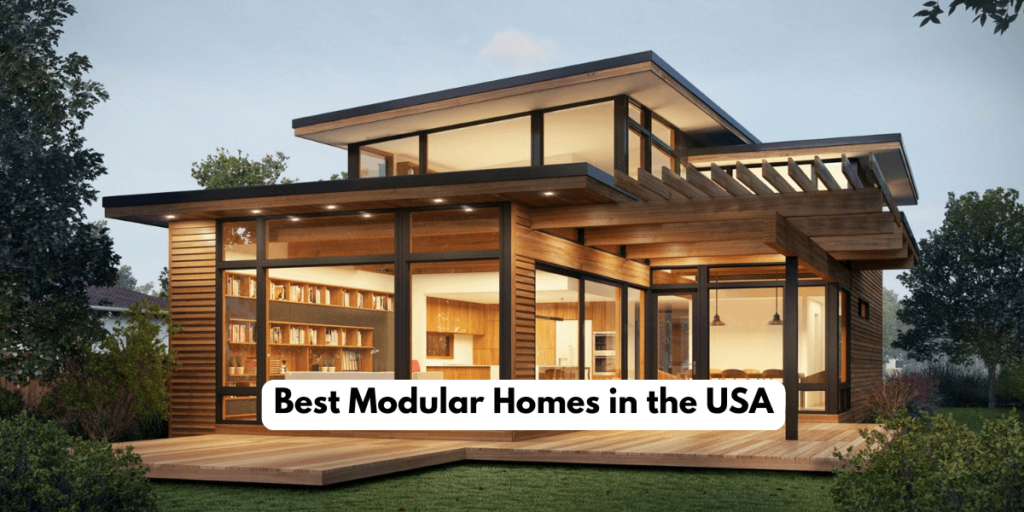Modular homes are revolutionizing the way Americans think about home construction and design. Whether you’re a first-time homebuyer, a self-proclaimed eco-warrior, or a budding DIY enthusiast, the world of modular homes offers something for everyone.
This guide will walk you through everything you need to know about modular homes, from their basics to understanding costs, types, builders, and even their environmental benefits. By the end of this post, you’ll be ready to decide if a modular home is the perfect fit for your needs.
Table of Contents
What Are Modular Homes in the USA?
Modular homes, often referred to as prefab homes, are factory-built houses that are constructed in sections (or modules) and later assembled on a permanent foundation at the final site. Unlike traditional on-site construction, modular homes are more streamlined, quick to build, and meet high manufacturing and construction standards.
These homes are not the same as mobile homes. Modular homes are permanent structures that follow the same building codes as traditionally built homes, making them durable, customizable, and modern.
Why Choose the Best Modular Homes for Your Needs?
The benefits of modular homes are extensive:
- Cost-Effectiveness: Prefabricated homes are generally more affordable than stick-built homes due to less labor and reduced material waste.
- Eco-Friendliness: Many modular homes are built with sustainability in mind, using energy-efficient materials and processes.
- Customizability: Modular homes offer diverse design options, allowing homeowners to create spaces suited to their personal preferences.
- Faster Construction: Because they are built indoors, weather rarely delays the process, allowing for quicker move-in times.
How Are Modular Homes Built?
Modular home construction involves a step-by-step process inside a controlled factory environment:
- Design Phase: Every home starts with a customized design process, where a detailed blueprint is created based on the buyer’s unique preferences, lifestyle needs, and aesthetic vision. This ensures the finished home is a perfect fit for its future occupants.
- Module Construction: Once the design is finalized, the construction begins in a controlled factory environment. The home is built in individual sections, including walls, floors, ceilings, and structural components. This method ensures precision and reduces waste compared to traditional construction methods.
- Assembly On-Site: After the modules are completed, they are carefully transported to your chosen site. There, skilled builders assemble the factory-built modules on a permanent foundation, ensuring everything aligns perfectly for a seamless structure.
- Final Touches: To complete the home, finishing touches are added. This includes connecting utilities such as electricity, plumbing, and HVAC systems, installing the roofing, and applying exterior finishes like siding or paint. These final steps ensure the home is move-in ready and meets all safety and regulatory standards.
Top Modular Home Builders in the USA
Choosing the right builder is key to ensuring quality, durability, and satisfaction with your modular home. Modular homes are a growing trend in the housing market, offering affordability, customizability, and faster construction times. Here are four of the best modular home builders in the USA, each excelling in different areas to meet a variety of needs.
Clayton Homes – Brilliant Quality Homes In USA

A leader in the industry, Clayton Homes specializes in creating affordable modular homes that don’t compromise on quality or style. Their wide variety of floor plans ranges from compact designs to spacious layouts, catering to all types of homeowners. They are also committed to innovation, offering energy-efficient materials and smart home features. Whether you’re a first-time buyer or looking for a budget-friendly family home, Clayton Homes has options to suit your lifestyle.
Champion Homes – Modern Affordable Homes
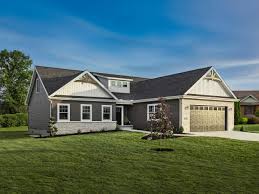
Champion Homes is known for its focus on customizable modular homes, offering a high degree of design flexibility. They work closely with customers to create homes that cater to specific needs, including modern aesthetics, open floor plans, and unique finishes. With a reputation for quality craftsmanship, their homes are popular among families, professionals, and urban dwellers seeking a personalized and stylish living space.
Method Homes – Eco-friendly
Sustainability takes center stage at Method Homes, making them one of the top choices for eco-friendly modular homes. Their designs incorporate renewable materials, energy-efficient systems, and environmentally conscious building practices. Method Homes also offers customizable options, allowing buyers to blend green living with their unique preferences. Ideal for environmentally conscious homeowners, these homes reflect a modern commitment to sustainability without sacrificing style or comfort.
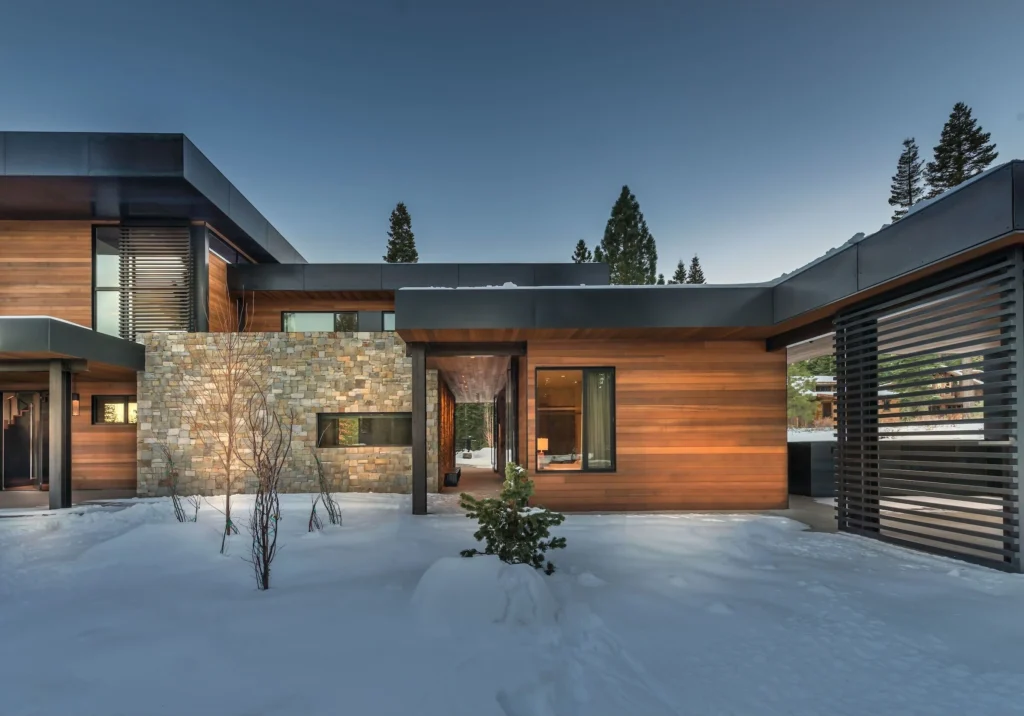
Impresa Modular – Top Quality Modular Homes
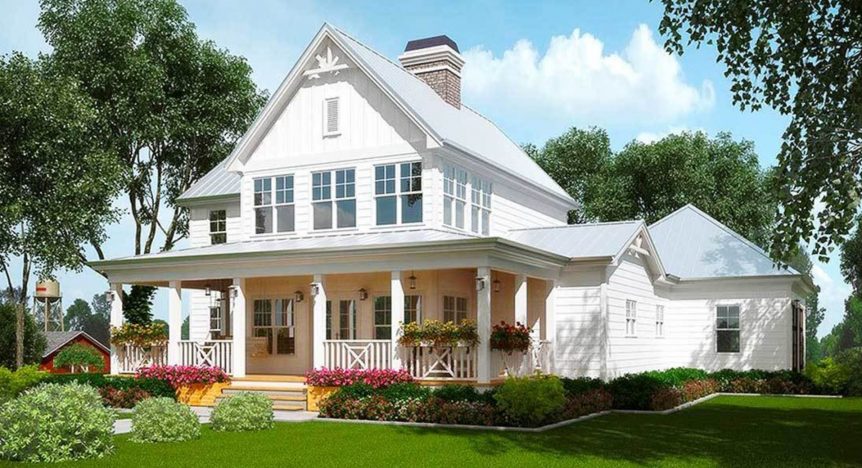
Offering nationwide service, Impresa Modular is the go-to choice for those seeking luxury and customizable modular homes across all 50 states. They specialize in high-end, architecturally stunning designs and are experts in handling complex projects. Impresa Modular offers tailored solutions for various lifestyles and budgets, whether you’re building a vacation retreat, an expansive family home, or a downsized modern dwelling. Their expertise ensures a seamless building experience from start to finish.
Each of these builders brings unique strengths to the table, so whether you’re focused on affordability, customization, sustainability, or nationwide accessibility, there’s a modular home builder here to meet your needs. Modular homes are more than just a trend—they’re a smart, efficient, and stylish way to build your dream home.
Modular Home Costs
What Are the Costs of Modular Homes in the USA?
The cost of a modular home can range from $100,000 to upwards of $500,000, depending on factors like square footage, finishes, and location.
Factors Influencing Modular Home Prices
- Size: Larger homes cost more due to additional materials and labor.
- Design Complexity: Luxury and customizable designs can increase your budget.
- Site Preparation: Costs for land preparation, foundations, and utilities vary significantly.
Customization and Design
Interior Design Ideas for Modular Homes
- Add multi-functional furniture to maximize small spaces.
- Use light colors and mirrors to create an illusion of larger areas.
- Install built-in shelves or cabinets to optimize storage.
Exterior Features for Modern Modular Homes
- Incorporate minimalist landscaping to match modern designs.
- Use solar panels for energy efficiency.
- Add a wrap-around porch for a touch of classic charm with contemporary design.
Location Considerations
Where to Place Modular Homes
Before installing a modular home, it’s essential to carefully review local zoning laws. These regulations determine where modular homes can be installed and whether the land is suitable for residential use.
You’ll need to ensure the property accommodates modular housing, complies with all building codes, and meets any additional regulatory requirements, such as setback rules or utility connections. Failing to adhere to zoning laws could result in costly delays or fines, so thorough research is key.
Navigating Zoning Laws for Modular Homes in the USA
Zoning regulations for modular homes vary widely by state, county, and even municipality. Some areas may require specific permits or have restrictions on the size or type of modular home allowed.
To simplify the process, it’s a good idea to consult a local land-use professional or work directly with your modular home builder, who can provide guidance on navigating the legal and logistical requirements. They can help you understand local ordinances, prepare necessary documentation, and ensure your project stays on track without unexpected complications.
Environmental Impact
Eco-Friendly Modular Homes
For eco-conscious individuals, modular homes are an excellent choice for sustainable living. These homes are designed with a focus on reducing environmental impact, offering a greener alternative to traditional construction.
Many builders, such as Method Homes, specialize in using renewable materials like reclaimed wood and sustainable fiberglass, along with energy-efficient technologies that minimize waste during the construction process. Additionally, modular construction often results in less site disruption, reducing the carbon footprint compared to conventional building methods.
Sustainability Features in Modern Modular Homes
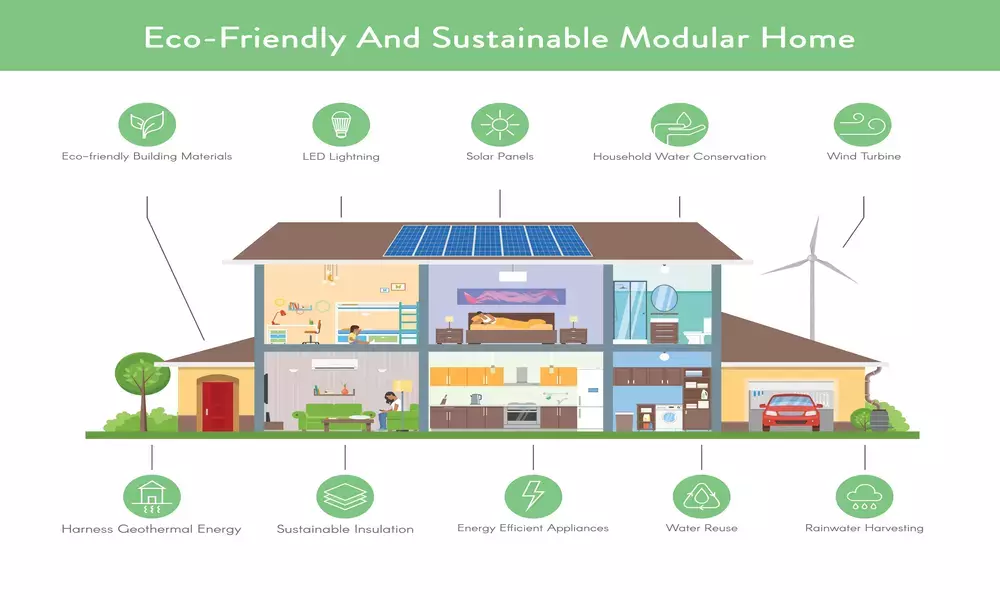
Modern modular homes boast a variety of sustainability features that promote energy efficiency and self-sufficiency:
- Installation of energy-efficient windows and insulation to reduce heating and cooling costs.
- Use of off-the-grid components like rainwater harvesting systems, which can collect and store water for household use.
- Integration of renewable energy sources, such as wind turbines, solar panels, and even geothermal heating, enabling homeowners to reduce reliance on traditional energy grids.
- Modular designs often allow for easier upgrades, meaning future innovations in eco-friendly living can be incorporated seamlessly.
Financing Modular Homes
Modular Home Financing Options
While modular homes tend to be more affordable than traditional homes, securing financing can still be a challenge for some buyers. Fortunately, there are several financing options available:
- Construction loans, which cover both the cost of building the modular home and preparing the land. These loans are often short-term and convert to a traditional mortgage after construction.
- FHA or VA loans, which are government-backed programs designed to make homeownership more accessible, including for modular homes. VA loans, in particular, offer favorable terms for veterans and active-duty service members.
- Local credit unions, many of which provide modular-home-specific financing options with competitive interest rates and terms tailored to the unique needs of modular homebuyers.
Budgeting for a Modular Home
Budgeting carefully is key to making modular homeownership a seamless process:
- Always compare multiple quotes for building and land costs to ensure you’re getting the best value for your investment.
- Consider the potential long-term savings on energy bills by prioritizing eco-friendly materials and energy-efficient technologies. While upfront costs may be slightly higher, these features often pay for themselves over time.
- Allocate funds for periodic maintenance to keep your modular home in top condition. This could include routine inspections of energy systems, cleaning of solar panels, or minor repairs to insulation or windows.
By understanding the environmental benefits and financial considerations, modular homes present a highly customizable, eco-friendly, and cost-effective housing option for the forward-thinking homeowner.
Living in Modular Homes
Maintenance Tips for Modular Homes
- Schedule regular inspections for structural integrity.
- Clean gutters and ensure proper roofing maintenance.
- Use non-abrasive materials for interior upkeep to maintain the aesthetic.
Understanding Resale Value
The resale value of modular homes depends on factors like location, condition, and demand. With the rising popularity of prefab homes, many modular homes retain competitive resale values.
FAQs
Are modular homes in the USA eco-friendly?
Absolutely! Many modular homes are designed with sustainability in mind and include energy-efficient features.
What are the best modular home builders near me?
Clayton Homes, Champion Homes, Method Homes, and Impresa Modular are some of the top-rated builders across the country.
How much do modern modular homes cost?
Depending on size and design, expect prices to range between $100,000 and $500,000.
Conclusion
Modular homes are more than just an innovative way to build—they’re a smart, sustainable, and cost-efficient solution for today’s homebuyers. Whether you’re drawn to their affordability, eco-friendliness, or modern designs, there’s a modular home that’s right for you.
Thinking about starting your modular home journey? Begin by exploring builders like Method Homes and Impresa Modular to create your dream house. With the right approach, building your ideal space has never been easier.


